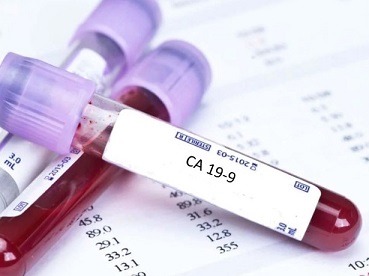BREAKING! COVID-19 Vaccines Cause Elevated Levels Of The Cancer Biomarker CA 19-9 And Is Possibly Triggering Autoimmune Pancreatitis!
Nikhil Prasad Fact checked by:Thailand Medical News Team Feb 23, 2024 1 year, 11 months, 3 weeks, 3 days, 16 hours, 43 minutes ago
COVID-19 News: In a recent collaboration between the Medical University of Silesia in Katowice, Poland, and The Mielecki Hospital-Poland, that is covered in this
COVID-19 News report, a research team has delved into the intricate connections between COVID-19 vaccinations, elevated levels of the cancer biomarker CA 19-9, and the emergence of autoimmune pancreatitis (AIP). This groundbreaking study challenges conventional medical wisdom, suggesting that the significantly elevated CA 19-9 levels, usually associated with pancreatic and biliary tract malignancies or cancers, may, in fact, be linked to non-cancerous conditions, specifically autoimmune pancreatitis triggered by COVID-19 vaccination.
 COVID-19 Vaccines Cause Elevated Levels Of The Cancer Biomarker
COVID-19 Vaccines Cause Elevated Levels Of The Cancer Biomarker
CA 19-9 And Is Possibly Triggering Autoimmune Pancreatitis
Case Report
The research team presents a compelling case study involving a 54-year-old female with a medical history of chronic leukopenia. The patient reported experiencing pain in the epigastric region shortly after receiving the AstraZeneca COVID-19 vaccine. Laboratory tests conducted in October 2021 revealed not only chronic leukopenia but also elevated levels of CA125 (87 U/mL, reference value: <35 U/mL) and an astonishingly high CA 19-9 level exceeding 12,000 U/mL (reference value: <37 U/mL). Notably, the patient exhibited normal pancreatic enzyme activity.
Further diagnostic procedures, including computed tomography (CT) scans, magnetic resonance imaging (MRI), and MR-cholangiopancreatography (MRCP), were performed to investigate potential abnormalities. The imaging results showed an enlarged pancreas with areas of fluid signal, prompting consideration of autoimmune pancreatitis (AIP). Despite being asymptomatic, the patient was advised to undergo a follow-up MRI in 12 months to monitor the pancreatic dimensions and CA 19-9 levels.
Results and Analysis
A comprehensive literature review conducted by the research team revealed that CA 19-9 elevations above 1000 U/mL can be attributed to a variety of non-cancerous diseases affecting different organs, including the lung, pancreas, liver, ovary, and kidney. The median CA 19-9 concentration across various causes of disease was found to be 2810 U/mL, challenging the assumption that extremely elevated CA 19-9 levels exclusively signify malignancies. Interestingly, significant differences were observed between the median CA 19-9 values in men (3500 U/mL) and women (2455 U/mL), sparking questions about gender-related variations in CA 19-9 dynamics.
Discussion
The study delves into the physiological aspects of CA 19-9, highlighting its synthesis by normal epithelial cells in the gastrointestinal tract and its historical association with pancreatic and biliary tract malignancies. Despite its routine use in monitoring pancreatic cancer, the study questions the efficacy of CA 19-9 as a screening tool, emphasizing its low positive predictive value. The combination of CA 19-9 and radiological imaging, traditiona
lly employed for diagnosis, is scrutinized for its potential to mislead clinicians, suggesting a more nuanced approach to differential diagnosis.
Detailed Analysis
The research team conducted a meticulous analysis of 47 patients, considering factors such as age, CA 19-9 concentrations, and disease categories including ovary and uterus, pancreas, liver, biliary tract, spleen, lungs, and kidneys. While significant age variations were noted among disease categories, CA 19-9 values did not exhibit a notable difference based on the disease category. These findings challenge the notion that CA 19-9 elevations are directly linked to specific diseases, urging a more comprehensive understanding of the biomarker's dynamics and its interpretation across various patient demographics.
Autoimmune Pancreatitis and COVID-19 Vaccination
The study explores recent reports indicating a potential correlation between COVID-19 vaccinations, specifically those utilizing mRNA or viral vector vaccines, and autoimmune diseases such as sialadenitis, autoimmune hepatitis (AIH), or autoimmune pancreatitis (AIP). Intriguingly, occurrences of AIP were primarily observed after the administration of booster vaccinations, suggesting a delayed autoimmune response that could be associated with the vaccination process itself.
Several hypotheses have been proposed in the literature to explain the connection between COVID-19 mRNA vaccines and the onset of AIP. One hypothesis posits molecular similarities between mRNA viral vaccine products and the viral proteome, suggesting that the mechanism leading to AIP could be similar to that observed in viral infections. Additionally, the literature suggests that AIP during COVID-19 infection might be caused by the high affinity of viral glycoproteins to the angiotensin II receptor, highly expressed in pancreatic tissue, triggering an autoimmune process. Other hypotheses propose molecular mimicry between viral glycoproteins and autoantigens, leading to the synthesis of cross-reacting antibodies and subsequent autoimmune diseases.
Conclusion
In conclusion, this comprehensive study challenges the conventional understanding of the diagnostic significance of extremely elevated CA 19-9 levels, proposing a paradigm shift towards considering non-cancerous conditions, particularly autoimmune pancreatitis triggered by COVID-19 vaccination. The findings underscore the importance of conducting thorough differential diagnoses and raise concerns about the safety of mRNA vaccines, emphasizing the need for continued exploration into the intricate relationship between vaccines, biomarkers, and autoimmune responses. The study findings serve as a call for vigilance in the medical community and advocates for future research endeavors that delve into the rare adverse event of AIP, ensuring a comprehensive understanding of the potential consequences of COVID-19 vaccination on pancreatic health.
The study findings were published in the peer reviewed Journal of Clinical Medicine.
https://www.mdpi.com/2077-0383/13/5/1263
For the latest
COVID-19 News, keep on logging to Thailand Medical News.
Read Also:
https://www.thailandmedical.news/news/texas-md-anderson-cancer-center-warns-that-covid-19-mrna-vaccines-elevate-pd-l1-levels-disrupting-lung-cancer-treatments-progressing-other-cancers
